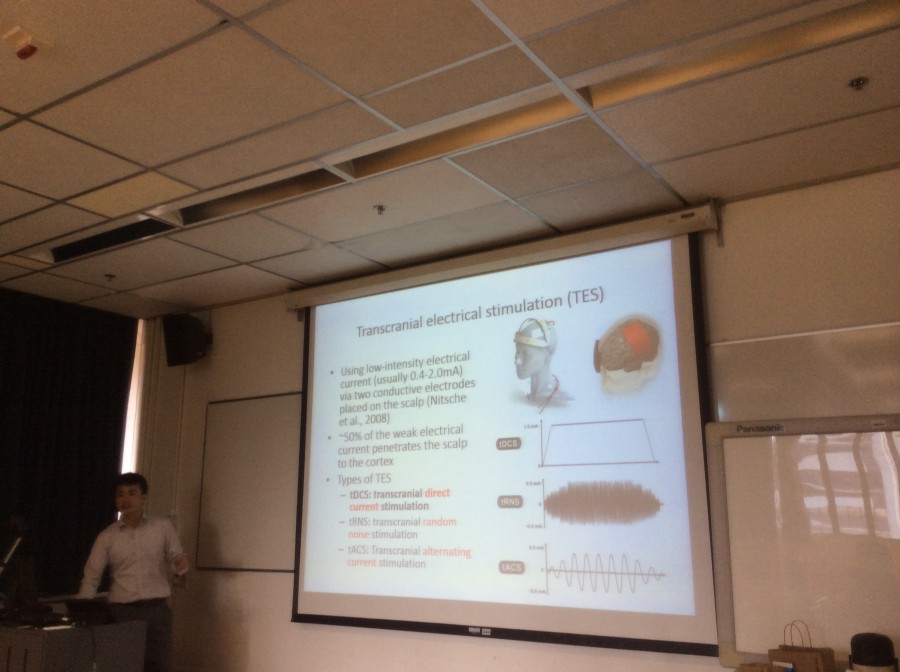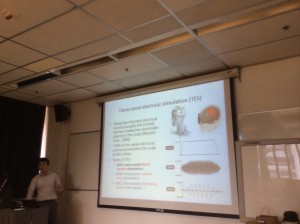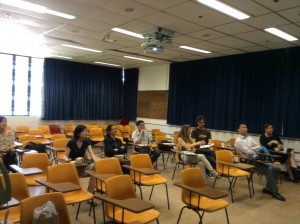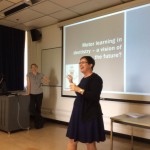Stimulating motor learning – a transcranial electrical stimulation (TES) approach

This presentation is part of SoL-SRT Symposium – Interdisciplinary research on motor learning.
Abstract
Transcranial electrical stimulation (TES) is a noninvasive method to modulate activities of the neurons in the brain by applying weak electrical currents to the head via electrodes that are placed on the scalp. Transcranial direct current stimulation (tDCS), the most frequently used mode of TES, offers two subtypes of stimulation: anodal stimulation pushes neural resting membrane potentials closer to the activation threshold and therefore increases neuronal excitability, while cathodal stimulation inhibits cell firing and decreases excitability. With the success of neuroimaging studies in identifying the neural bases of learning and performance in past two decades, using TES to enhance learning and performance becomes possible.
The talk will first introduce different types of TES and their mechanism of action. Then, it will review the literature using TES for enhancement of various types of learning and performance (e.g., motor, speech, language, and other cognitive abilities) in healthy adults, children, elderly, and patients with impaired function in the brain. Next, the talk will share an ongoing study of using tDCS to facilitate motor learning and performance in HKU. Last, possible ethical issues of using TES for enhancement of learning and performance will be discussed.
About the speaker
Dr Frank Zhu completed his PhD in Experimental Psychology at the University of Hong Kong in 2011. He got professional trainings in transcranial magnetic stimulation (TMS) and transcranial electrical stimulation (TES) at Harvard Medical School in 2013 and Oxford in 2014. He has a broad range of interests in the area of skills acquisition and cognitive neuroscience, particularly in implicit motor learning, electroencephalography (EEG), non-invasive brain stimulation (TMS and TES), and neuroenhancement in health and in disease. Dr Zhu is now a joint postdoctoral fellow in the Institute of Human Performance & Department of Surgery.





